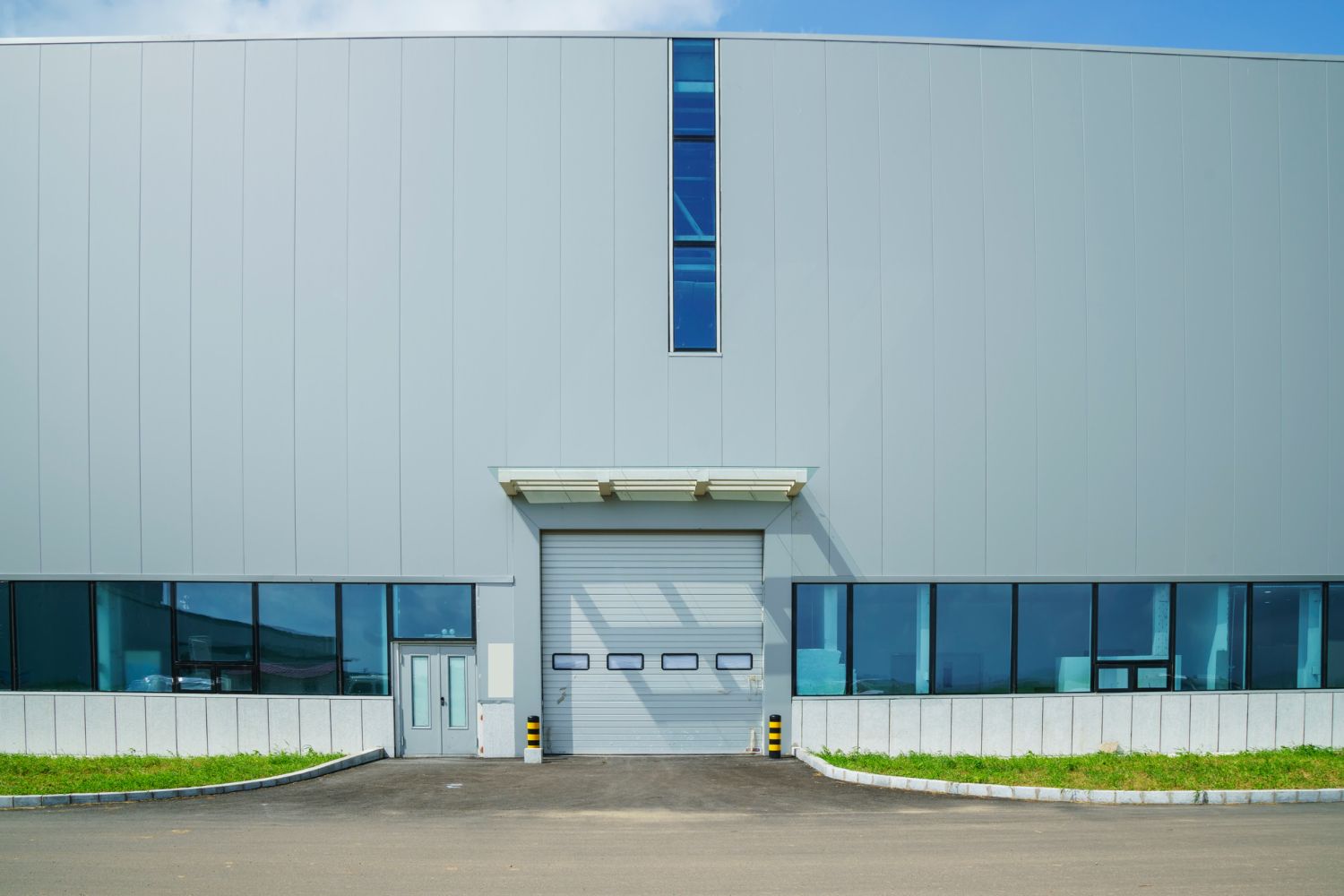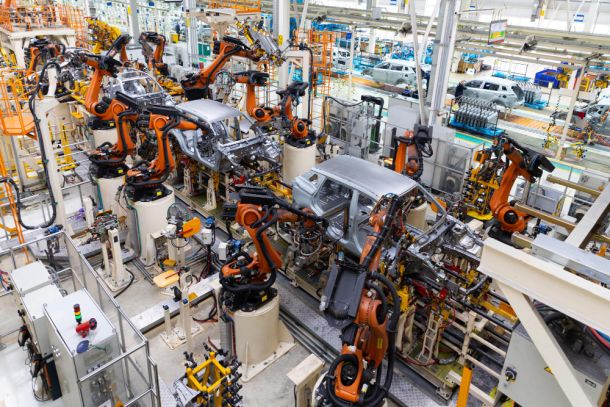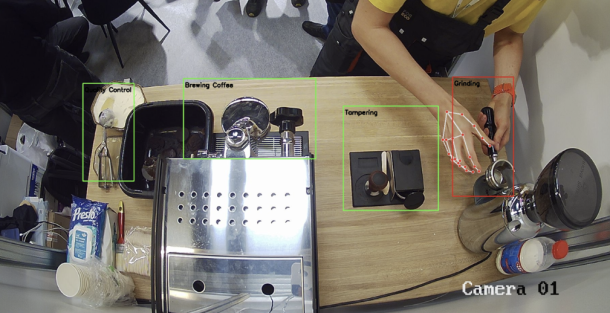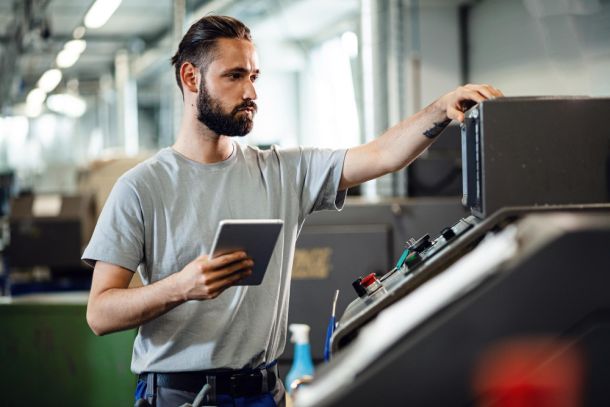AI Copilot for Manufacturers: The Future of Smart Manufacturing
Manufacturing businesses face increasing pressure to optimize operations, reduce costs, and improve product quality. That is reality... And it is also real that the integration of advanced technologies like Artificial Intelligence (AI) is transforming the manufacturing sector. Among these innovations, the AI Copilot stands out as a pivotal moment, poised to revolutionize the way manufacturers operate. So, let's understand why businessmen from the manufacturing sector need an AI Copilot, and how it can drive unprecedented efficiency and growth.
What is an AI Copilot?
An AI Copilot is an advanced AI-driven system designed to assist and enhance the capabilities of human workers in manufacturing. It leverages machine learning, data analytics, and automation to provide real-time insights, predictive maintenance, and process optimization. Think of it as a highly intelligent assistant that continuously learns and adapts to improve manufacturing processes, reduce downtime, and enhance decision-making.
Why Manufacturers Need an AI Copilot
1. Enhanced Efficiency and Productivity
Efficiency is the cornerstone of successful manufacturing operations. An AI Copilot can analyze vast amounts of data from various sources, such as sensors, machines, and production lines, to identify bottlenecks and inefficiencies. By providing actionable insights, it enables manufacturers to streamline processes, reduce waste, and increase overall productivity.
2. Predictive Maintenance
Unplanned downtime can be a significant cost burden for manufacturers. AI Copilots excel in predictive maintenance by continuously monitoring equipment health and performance. Using predictive analytics, they can forecast potential failures before they occur, allowing maintenance teams to address issues proactively. This not only reduces downtime but also extends the lifespan of machinery, saving costs in the long run.
3. Improved Quality Control
Maintaining high product quality is crucial for customer satisfaction and brand reputation. AI Copilots use machine learning algorithms to detect anomalies and deviations in real-time during the production process. By identifying defects early, manufacturers can implement corrective actions promptly, ensuring that only high-quality products reach the market.
4. Supply Chain Optimization
Analyzing data from suppliers, inventory levels, and market demand, AI copilots optimize supply chain management by predicting potential disruptions, recommending optimal inventory levels, and suggesting alternative suppliers, thus ensuring a resilient and efficient supply chain vital for timely production and delivery.
5. Data-Driven Decision Making
In the era of big data, making informed decisions is a competitive advantage. AI Copilots provide manufacturers with deep insights derived from complex data sets. By presenting this data in an easy-to-understand format, they empower decision-makers to make data-driven choices that enhance operational efficiency, reduce costs, and drive innovation.
6. Human-Machine Collaboration
The fear that AI will replace human jobs is a common misconception. Instead, AI Copilots are designed to augment human capabilities. By handling repetitive and mundane tasks, they free up human workers to focus on more strategic and creative aspects of manufacturing. This collaboration between humans and machines leads to a more engaged and productive workforce.
7. Sustainability and Energy Efficiency
Sustainability is becoming a key priority for manufacturers worldwide. AI Copilots can help achieve sustainability goals by optimizing energy consumption, reducing waste, and minimizing the environmental impact of manufacturing processes. They can analyze energy usage patterns and recommend energy-saving measures, contributing to a greener and more sustainable manufacturing operation.
The Future of Manufacturing with AI Copilot
The integration of AI Copilots into manufacturing is not just a trend; it is the future of smart manufacturing. As AI technology continues to evolve, the capabilities of AI Copilots will expand, offering even more sophisticated solutions to the challenges faced by manufacturers. Here are a few trends that highlight the future potential of AI Copilots:
1. Autonomous Manufacturing
Can you Imagine a factory where machines and systems operate autonomously with minimal human intervention? AI Copilots will play a crucial role in achieving this vision by coordinating various aspects of the manufacturing process, from production scheduling to quality control. Autonomous manufacturing will lead to higher efficiency, lower costs, and faster production cycles.
2. Advanced Robotics Integration
AI Copilots will increasingly integrate with advanced robotics to perform complex tasks that require precision and adaptability. These intelligent robots, guided by AI Copilots, will handle everything from assembly to packaging, ensuring consistent quality and reducing human error.
3. Real-Time Market Adaptation
Everything changes rapidly, and manufacturers need to adapt quickly to shifts in demand. AI Copilots can analyze real-time market data and adjust production schedules accordingly. This agility will enable businessmen to meet customer demands promptly and stay ahead of competitors.
4. Enhanced Cybersecurity
As manufacturing processes become more digitized, cybersecurity becomes a critical concern. AI Copilots can help safeguard manufacturing operations by detecting and mitigating cyber threats in real-time. They can identify vulnerabilities, monitor network activity, and respond to security breaches, ensuring the integrity and safety of manufacturing data.
Conclusion
In conclusion, AI Copilot for manufacturers is not just a technological innovation; it is a strategic necessity for businesses looking to thrive in the competitive landscape of modern manufacturing. By enhancing efficiency, reducing downtime, improving quality, and enabling data-driven decision-making, AI Copilots offer a transformative solution that can drive growth and sustainability.
For businessmen in the manufacturing sector, embracing AI Copilots is an investment in the future. It is an opportunity to leverage cutting-edge technology to stay competitive, meet customer expectations, and achieve operational excellence. As we move towards a future where AI and human collaboration define manufacturing success, the AI Copilot stands as a beacon of innovation, guiding manufacturers towards a smarter, more efficient, and sustainable future.












